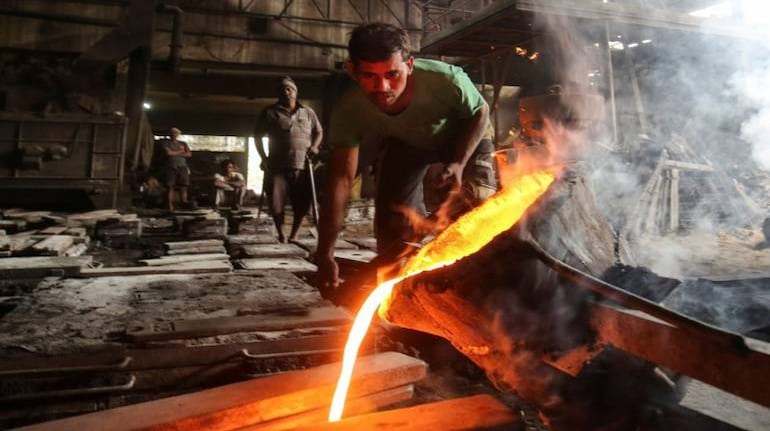



The first day of selective re-opening of manufacturing facilities after 26 days of lockdown due to novel coronavirus, or COVID-19, outbreak turned out to be a damp squib for appliance makers. Sources told Moneycontrol that companies barely managed to secure permissions on time to resume production in factories while a portion of the workers have moved back to their home towns.
“We had applied for a permit as soon as the Ministry of Home Affairs (MHA) had issued norms for re-starting production on April 15. However, permissions are awaited,” said the senior vice president of a consumer electronics firm with a large facility in Haryana.
Also Read: Live updates from COVID-19 outbreak in India
With a widening list of hot zones and containment areas, the consumer durables firms are now planning to wait till the situation improves and the restrictions of lockdown being completely lifted.
In its list of guidelines on April 15, MHA said manufacturing and industrial establishments in special economic zones, export-oriented units, industrial townships and industrial estates will be allowed to operate from April 20 if they fall under non-containment zones.
After these guidelines were released, appliance makers had readied themselves to resume manufacturing operations from April 20 onwards. Now with rising cases and no possibility of sales, white goods firms are planning to pause activities till the lockdown lifts completely.
The initial idea was that from April 20 production would begin and sales of inventory could resume through e-commerce platforms. However, MHA on April 19 revoked the earlier permission granted to e-commerce firms to sell and deliver non-essential items.
“We are waiting for a nod to get permission to begin full-fledged manufacturing. However, even if we do produce, where will we sell? What is the purpose of manufacturing without any sale,” said the deputy chief of a white goods firm with multiple plants in Gujarat.
The reversal of the e-commerce permission, according to Commerce and Industry Minister Piyush Goyal, was to ensure a level-playing field for all traders. The April 15 guidelines had only permitted (now withdrawn) e-commerce firms to begin non-essential item delivery. Small traders had expressed concerns about one set of sellers being allowed to distribute goods while offline players had not been given any such exemption.
Also read: Lockdown 2.0 | Centre's U-turn on order allowing resumption of all e-commerce operations explained
Avneet Singh Marwah, CEO of Super Plastronics (exclusive brand licensee of Thomson TVs and Kodak TVs in India), said that while the company supported the government decision, it is important to initiate some sale of electronics as they have become ‘essential’ for many consumers with the lockdown spanning over 30 days.
“e-commerce platforms are the most effective and safe way of managing sales of such items and steps must be taken to initiate the same. At the same time, the companies must be directed to follow strict guidelines of safe production and social distancing to ensure customer safety,” he added.
Under its April 15 guidelines, the government took taken steps to ease conditions for the manufacturing sector to resume operations. The steps include allowing industries outside limits of municipalities and municipal corporations to start operations, freeing up transportation of goods and setting guidelines for the movement and stay of labour.
However, inter-state movement of labour is not allowed. Production facilities had almost 30-40 percent of the factory workers moving back to their home towns in March as soon as the lockdown was announced.
An electrical goods company that received permission to begin its manufacturing unit in NCR region, but does not have manpower to operate the machines. The head of the north zone of the firm told Moneycontrol that while 70 workers stayed within five km of the plant, they were unwilling to commute citing safety concerns.
The government has said that transport for all workers in the manufacturing facilities resuming from April 20 must be provided by the individual companies. The MHA circular stated that if possible, arrangements for workers to stay must be made within the units.
Follow our full coverage of the coronavirus pandemic here.Discover the latest Business News, Sensex, and Nifty updates. Obtain Personal Finance insights, tax queries, and expert opinions on Moneycontrol or download the Moneycontrol App to stay updated!
Find the best of Al News in one place, specially curated for you every weekend.
Stay on top of the latest tech trends and biggest startup news.